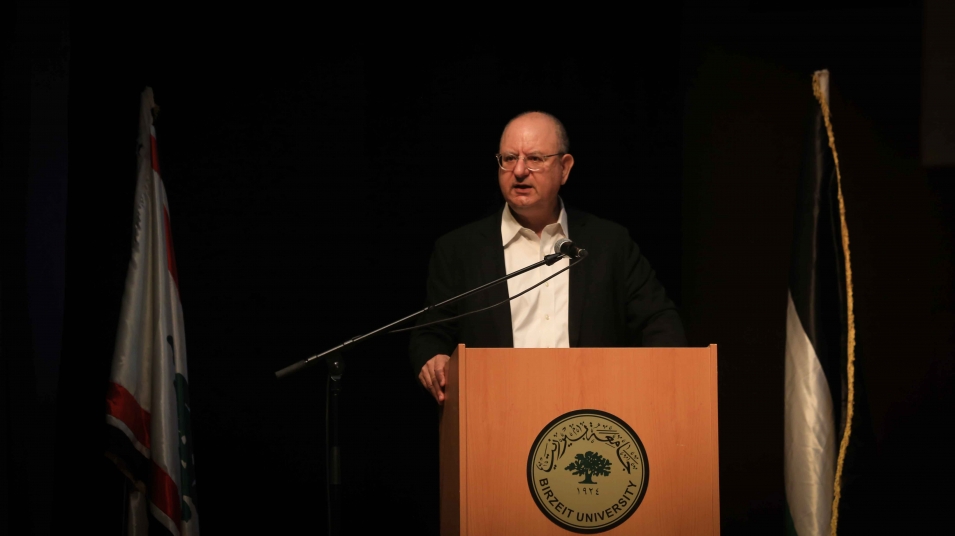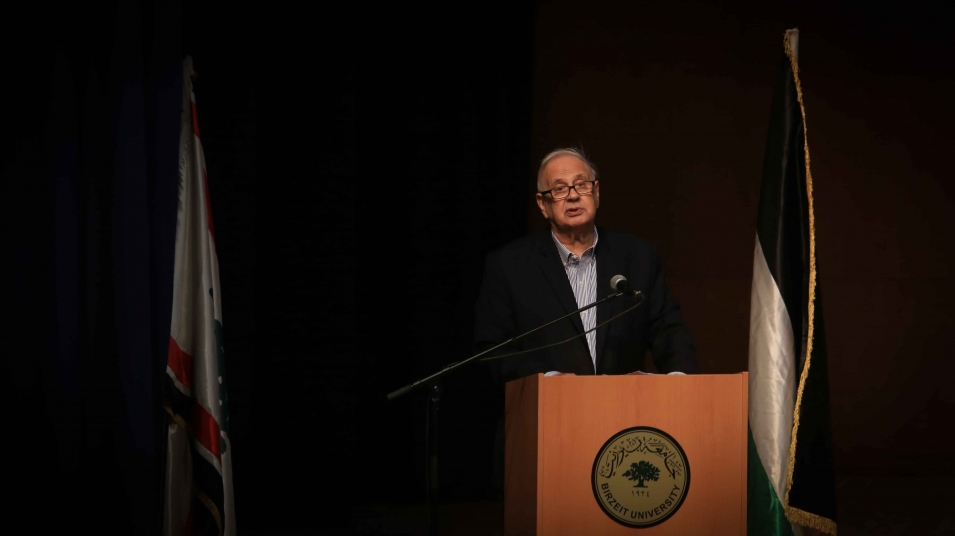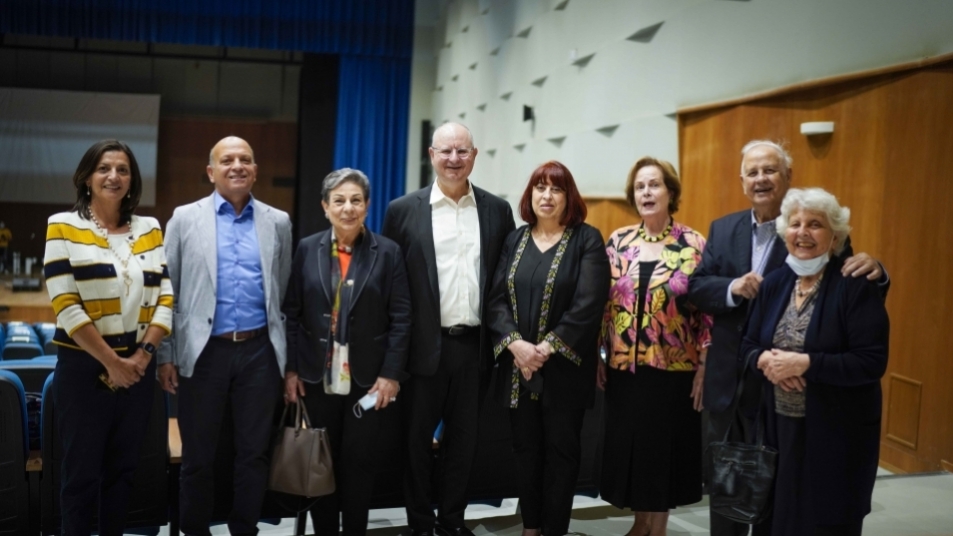Birzeit University welcomes its new president, Dr. Beshara Doumani
Birzeit University’s students, faculty, staff, and Board of Trustees welcomed the fifth president of the university Dr. Beshara Doumani in a special inauguration ceremony held on campus on Tuesday, September 28, 2021.
Addressing the attending guests and members of the university’s community, Dr. Hanna Nasir, chairperson of the Board of Trustees, welcomed Dr. Doumani’s appointment, noting his academic achievements and national and international roles in the development of engaged scholarship.
“We believe that Dr. Beshara would introduce new ideas and fresh perspectives in his capacity as president,” said Dr. Nasir, adding that newly elected university presidents are chosen due to their commitment to the values and guiding philosophy of Birzeit University, which, he added, “represent a commitment to academic freedom, liberalism, and this institution’s independence and leading national and social roles, which have been a mainstay of the university even since its inception in 1924 as a small school for girls.”
The president, Dr. Naser emphasized, also has the duty and responsibility of managing the university and guiding its advancement despite the Israeli occupation’s ongoing oppression of students and staff alike.
In his speech, Dr. Doumani presented his vision for the future of the university, expressing his firm belief that through constructive dialogue, shared governance, institutional integrity, respect for pluralism and diversity, and safeguarding the rights and dignity of all members of the university’s community, Birzeit University can become a model for the future Palestine.
The development of the university’s community, and the broader Palestinian society, noted Dr. Doumani, can only be achieved through a strong commitment to, and investment in, the future generations of Palestinian youth, built upon shared dialogue between all members of the community inside and outside the university.
Dr. Doumani, who has previously worked as a lecturer at Birzeit University in the Cultural Studies Department between 1981 and 1983, said that he returned to Palestine and to Birzeit, in particular, to “stand with you at a moment of dramatic and radical changes in the nature and character of our struggle.” Such changes, he added, necessitate a recalibration and an expansion in the focus of the university’s educational, social and national missions “to deliver forms of knowledge that bolster the resistance to settler colonial practices in ways that go beyond the staffing of state institutions.”
Birzeit University, Dr. Doumani emphasized, is unique not only for the role that it plays in the Palestinian community and beyond, but for the fact that it is a university for all Palestinians, wherever they may be. At Birzeit University, he added, “we’re not competing with other Palestinian universities; we’re competing to become the best versions of ourselves.”









